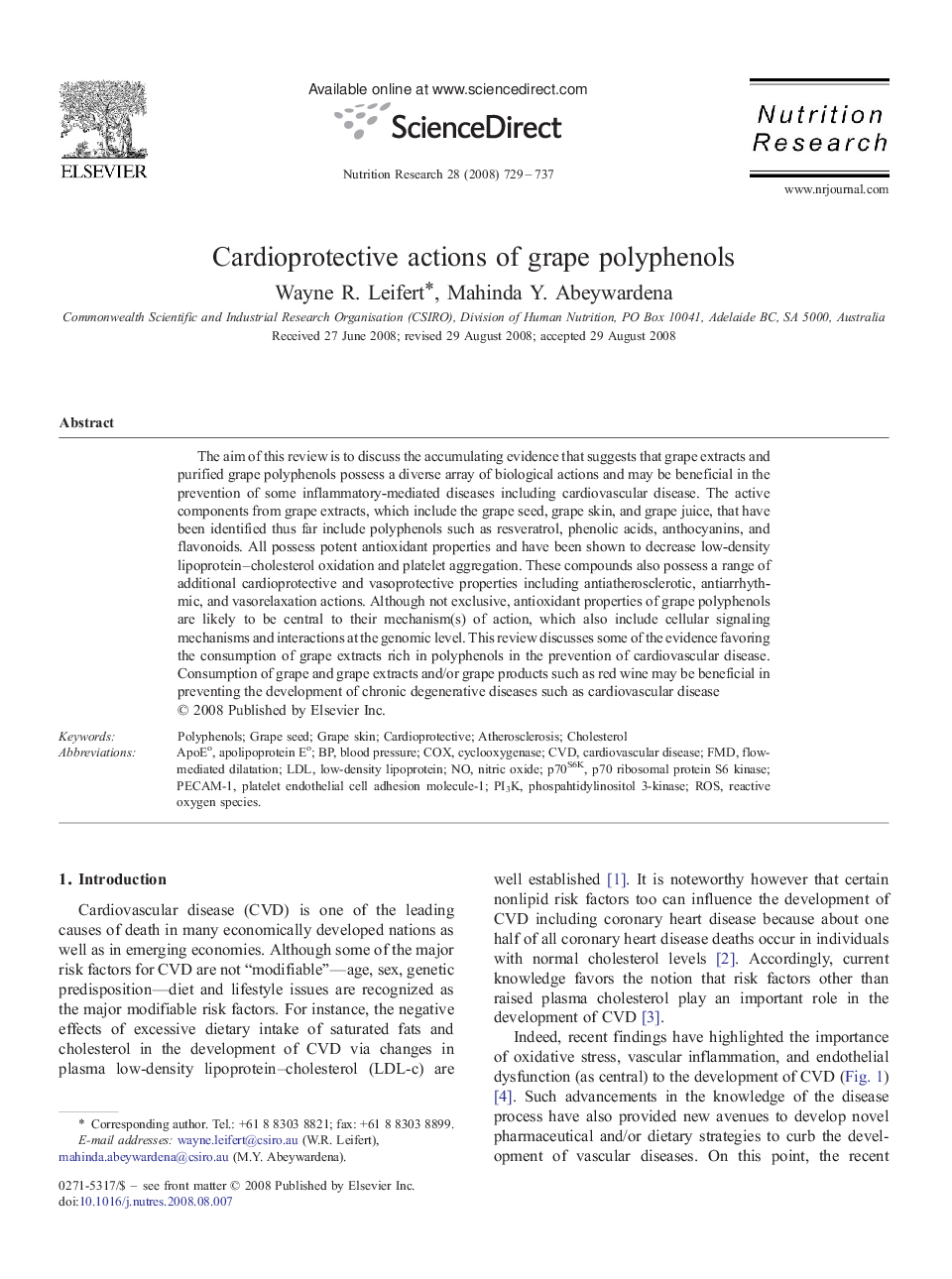| Article ID | Journal | Published Year | Pages | File Type |
|---|---|---|---|---|
| 2809907 | Nutrition Research | 2008 | 9 Pages |
The aim of this review is to discuss the accumulating evidence that suggests that grape extracts and purified grape polyphenols possess a diverse array of biological actions and may be beneficial in the prevention of some inflammatory-mediated diseases including cardiovascular disease. The active components from grape extracts, which include the grape seed, grape skin, and grape juice, that have been identified thus far include polyphenols such as resveratrol, phenolic acids, anthocyanins, and flavonoids. All possess potent antioxidant properties and have been shown to decrease low-density lipoprotein–cholesterol oxidation and platelet aggregation. These compounds also possess a range of additional cardioprotective and vasoprotective properties including antiatherosclerotic, antiarrhythmic, and vasorelaxation actions. Although not exclusive, antioxidant properties of grape polyphenols are likely to be central to their mechanism(s) of action, which also include cellular signaling mechanisms and interactions at the genomic level. This review discusses some of the evidence favoring the consumption of grape extracts rich in polyphenols in the prevention of cardiovascular disease. Consumption of grape and grape extracts and/or grape products such as red wine may be beneficial in preventing the development of chronic degenerative diseases such as cardiovascular disease
